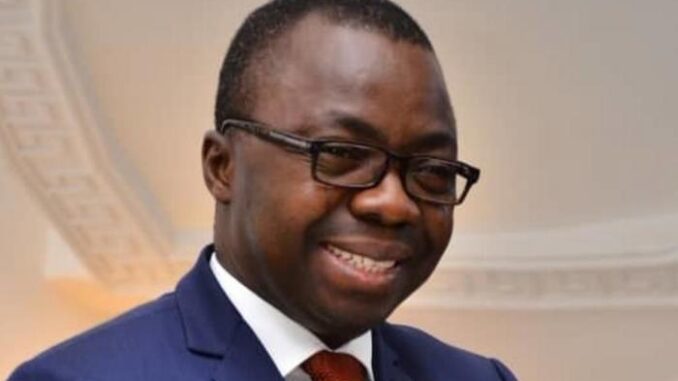
The trial of Beninese opposition figure Joel Aïvo, arrested in mid-April following the presidential election in which he was not allowed to stand, opened on Thursday in Porto-Novo.
The 47-year-old law professor is on trial before the Court of Repression of Economic Offenses and Terrorism (Criet) for “security breaches” and “money laundering”.
He was arrested on April 15 in Porto-Novo, the day after the announcement of the re-election of President Patrice Talon with more than 86% of votes, and was then charged and imprisoned.
On Thursday morning, the academic, dressed in a black suit and white shirt and escorted by two police officers, appeared before the Criet.
According to his lawyers, “all guarantees of a fair trial and the rights of the defense have been systematically flouted” since the beginning of the proceedings.
The Criet, established in 2016 by the government, is accused by its critics of serving as a judicial tool to muzzle the opposition.
It is the same court that is in charge of trying Reckya Madougou, another prominent opposition figure arrested a few weeks before the election.
The Public Prosecutor’s Office has asked the Court to declare itself incompetent, a request that has aroused the disapproval of the lawyers. The Court will give its answer on August 5.
Grievances abounded: why present a defendant who was supposed to be tried in flagrante delicto, three months after his arrest, when the law prescribes 72 hours? Mr. Bonou told the Public Prosecutor: “It’s extraordinary”, then concluded: “Free Joël Aïvo. He is a pilgrim of peace, a brilliant academic, of great reputation. He has no business being there.
